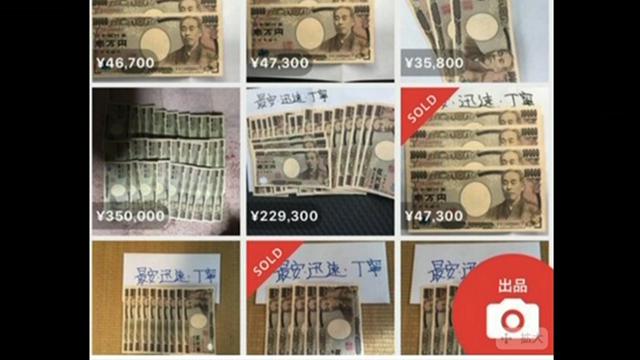The 4 people were arrested on November 16th for allegedly selling cash at high prices through the Mercari app.
The suspects are men and women from Hiroshima, Nara, Akita and Chiba prefectures. It's the first time for sellers on Mercari to be arrested for their involvement in cash sales.
One of the suspects is Hideki Tanaka, a self-employed man from Hiroshima Prefecture.
Kyoto police say Tanaka and another suspect have been selling cash over the app since September of last year.
Police say the suspects put the money up for sale under 'silver coins' and other terms, and each obtained nearly 900,000 yen, or US$8,000 from the transactions.
In April, Mercari's operator banned cash from being offered online after a series of such incidents. The police were notified and began investigating. Police suspect illegal loans were being offered repeatedly through the wrongful use of the app.
How does the system work?
Users of Mercari can buy and sell goods and services just as they do at a flea market. Online transactions can be settled using credit cards and other means.
Cash has been offered and sold many times on Mercari for more than its face value in the past.
For example, a seller would put up 10,000 yen cash for sale at 13,000 yen.
A buyer in desperate need of cash would pay for it with their credit card. The seller would then send the money to the buyer.
The seller would make a profit of 3,000 yen in a period of about 2 weeks. That would come out to 72,000 yen a year -- an annual interest rate of 720%.
How did the suspects sell cash despite monitoring?
After Mercari's operator banned the sales in April of this year, it also began taking other measures. It started monitoring items for 24 hours after they were put up for sale, and began checking for keywords like 'cash' and 'notes,' and deleting items when there were irregularities.
A posting belonging to one of the suspects had no image of cash or mention of money. It only said 'silver coins,' or jargon for cash. That's why the company couldn't pick up the transactions while monitoring the site.
Kazuhiro Yamada, one of the firm's executives, says the sellers of cash are using different tactics to avoid detection. For instance, they may post images of objects that look like cash, or fold banknotes into different shapes.
The company behind Mercari says it will strengthen its monitoring by increasing search terms to include jargon and other references to cash.
Yamada says they plan to utilize artificial intelligence or invest in new technologies to detect the activity. He says by making the system learn from imagery or words used by sellers, they may be able to detect illegal activity more effectively than humans.
Expert: The trend may become a cat-and-mouse game
NHK asked an IT expert about the incident. Hiroshi Domoto, a professor from Tokyo University of Information Sciences, says police made the arrests to let people know selling money for profit is illegal, and that it will discourage people from buying cash.
Domoto also says that from now on, some people may try to sell other items that are easily cash-convertible, but this will still constitute illegal cash lending. He says it may become a cat-and-mouse game.
